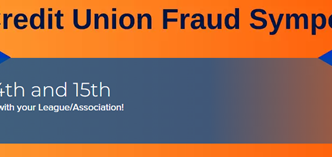Does S. 2155 (now Public Law 115-174) impose any additional FCRA obligations on credit unions?
The compliance obligations contained in the new law directly impact credit reporting agencies, not credit unions. However, credit unions as users of credit reports will experience changes in the way certain information is reported and/or restricted by credit bureaus.
The Economic Growth, Regulatory Relief and Consumer Protection Act (EGRRCPA) of 2018 (S. 2155, P.L. 115-174), signed into law on May 24, 2018, enhanced consumer protections under the Fair Credit Reporting Act in the following ways:
Section 301:
- Requires credit bureaus to provide fraud alerts on consumer credit reports for at least one year (up from 90 days) when notified by an individual who believes he or she has been or may become a victim of fraud or identity theft; and
- Provides consumers the right to place (and remove) a security freeze on their credit reports free of charge (in the case of a minor, the parent or authorized representative may request the credit freeze).
Section 302:
- Mandates that certain medical debts incurred by a veteran be excluded from the veteran’s credit report until one year has passed from when the medical service was provided (credit bureaus had already implemented a 6-month delay);
- Requires the removal of veterans’ delinquent medical debts from credit reports once they are fully paid or settled;
- Establishes a dispute process and verification procedures for veterans’ medical debts contained in consumer credit reports;
- Requires the Veterans Administration to establish a database within one year to allow consumer reporting agencies to verify whether a debt furnished to a consumer reporting agency is a veteran’s medical debt subject to these new protections; and
- Requires free credit monitoring to active duty military members that would alert them to material changes in their credit scores.
Section 602
- Allows consumers to request information related to a default on a qualified private student loan be removed from a credit report if the borrower satisfies the requirements of the lender’s loan rehabilitation program (as approved by the lender’s regulator).
This is just a brief snapshot of these provisions – more details will follow in the coming days, weeks and months as the financial services industry and regulators work through all of the various changes.
Read the full InfoSight newsletter here.





